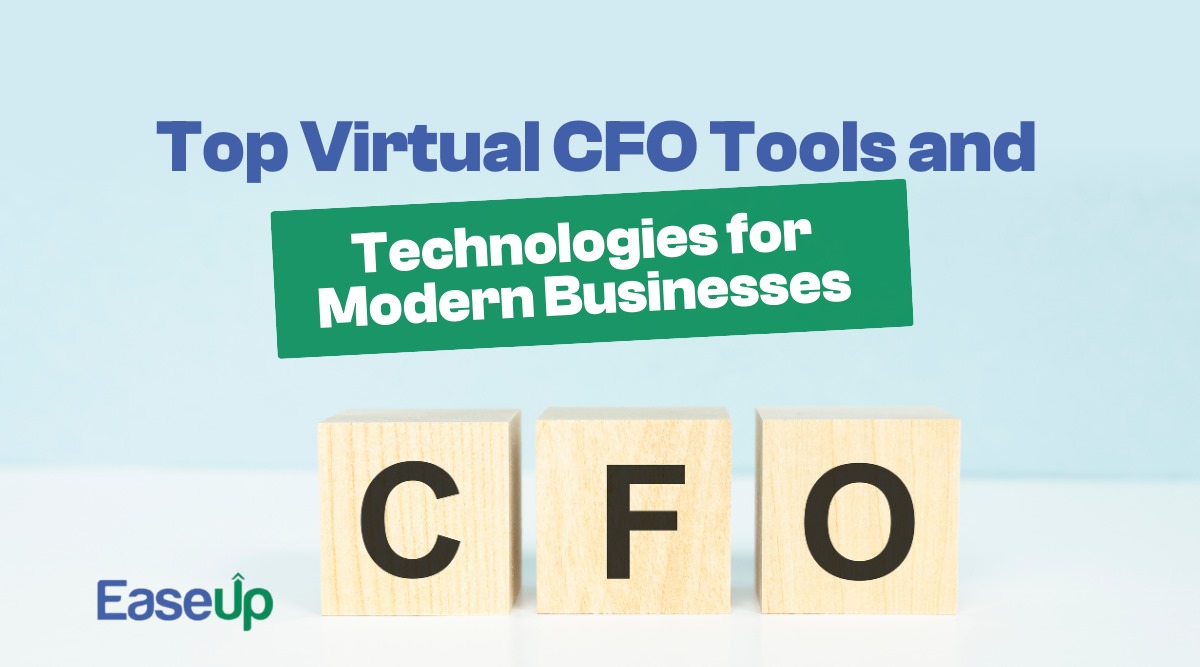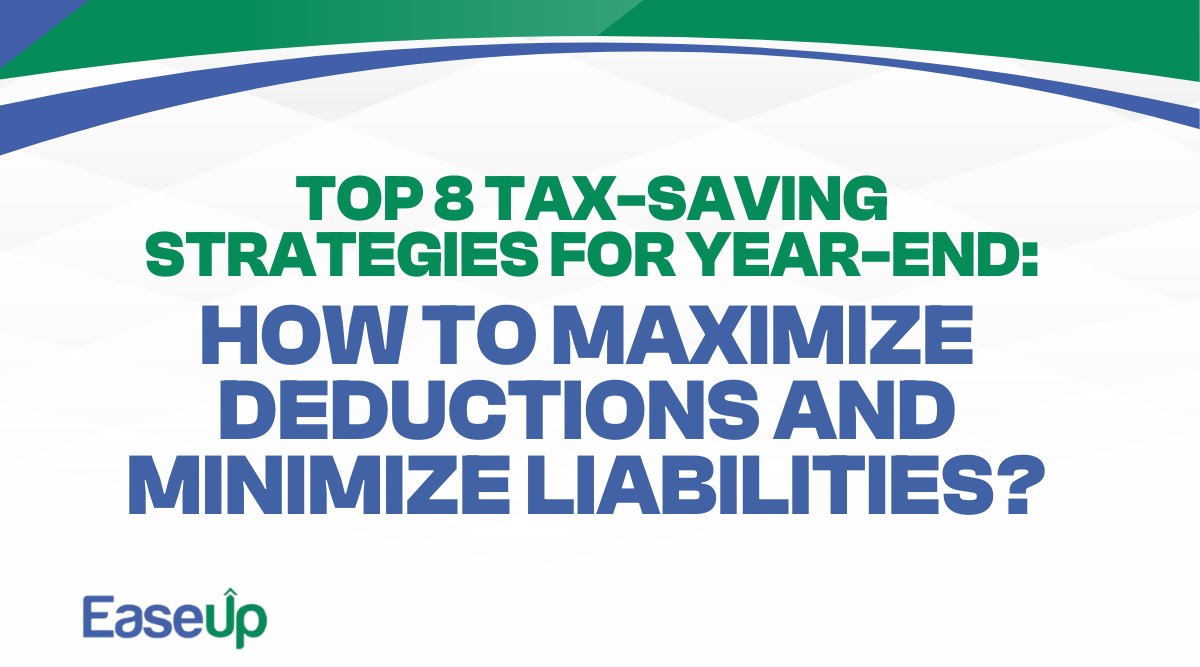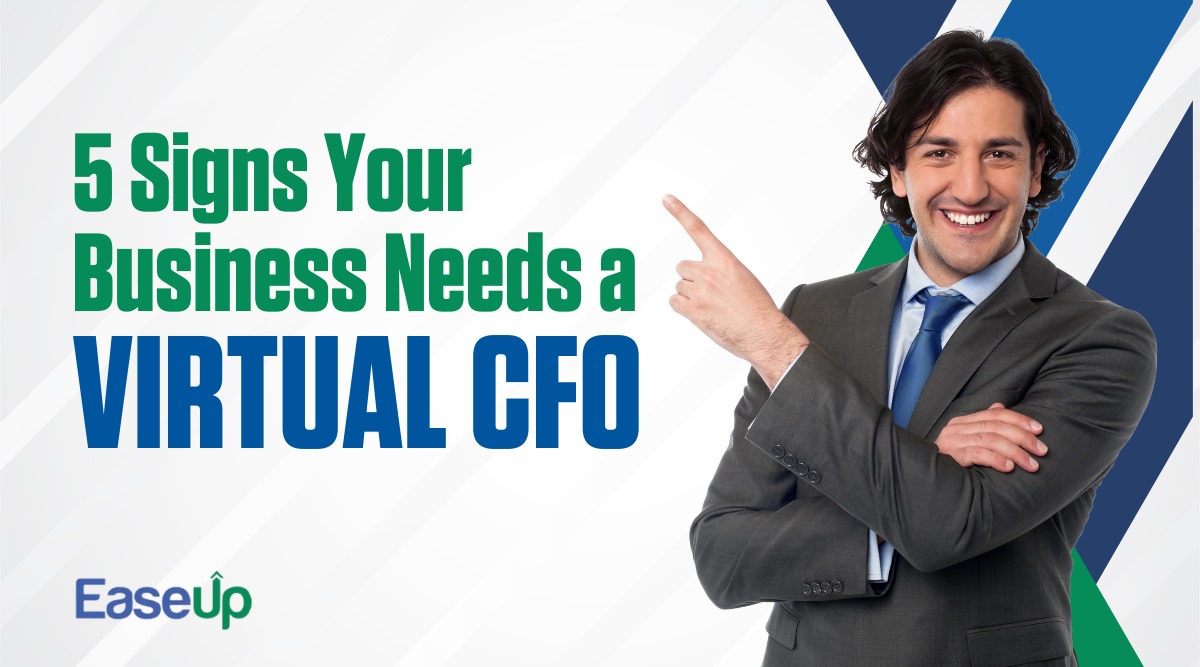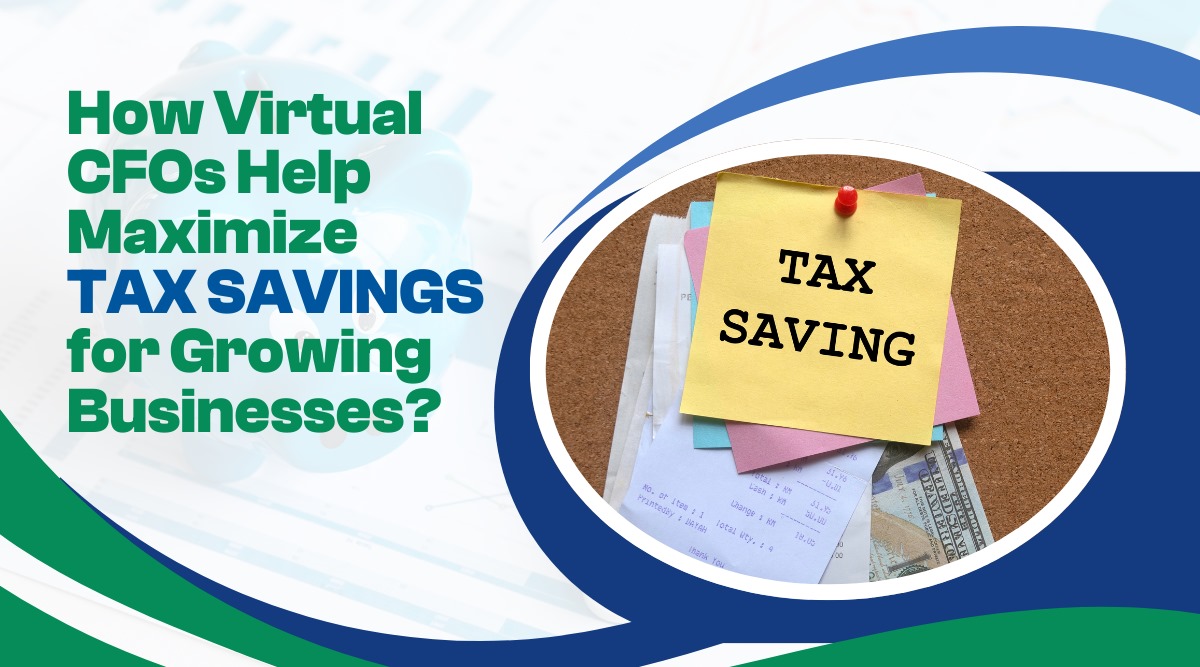

Top Virtual CFO Tools and Technologies for Modern Businesses
Dec 02,2024

A Virtual CFO is an outsourced financial expert who provides high-level financial management on a project on freelance basis. Their job includes strategic financial planning, risk management, financial reporting, and much more. Virtual CFOs operate from outside the company, mostly remotely, using technology to deliver their services.
EaseUp provides Virtual CFO services aimed at helping Tech agencies, startups, and Small & Medium businesses. We help these organisations achieve their desired results, reducing risks associated with businesses as well as enhancing their financial position.
Understanding Virtual CFO Services
In today’s rapidly changing business environment, successful start-ups and small-to-medium enterprises are dependent on efficient financial management. Among the most relevant solutions for these businesses is the virtual CFO service. These professionals provide expert financial guidance cost-effectively to avoid the overhead of hiring a full-time CFO.
Advantages for Start-ups and SMEs
Cost-Effective: Start-ups and SMEs operate on tight budgets. Hiring a full-time CFO is prohibitively expensive. However, Virtual CFOs provide the same level of expertise at half the cost.
Expertise: Virtual CFOs have experience in various industries, bringing valuable insights and strategies that can help businesses navigate financial complexities.
Flexibility: These services are highly flexible, scaling the level of financial support based on current needs. One may require a specific project or be looking for ongoing support; Virtual CFOs adjust according to this.
Focus on Core Business: The owner of the company can focus on the other main activities which are product development, marketing, and sales. All these keep growing and innovating the companies.
The Role of Technology in Virtual CFO Services
At the very top are cloud computing applications, allowing for a scaled and secure environment to gain access to financial data from anywhere. These, thus, facilitate real-time collaboration and ensure that businesses can make rapid, informed decisions without geographical constraints.
Automation and AI: The backbone of the virtual CFO services, automation along with artificial intelligence, automates mundane financial tasks and also digs deep into financial data to discover patterns. This enables critical analysis in:
Forecasting: Financial trends are predicted with higher accuracy.
Risk Assessment: Potential financial risks are discovered before they become problems.
Strategic Financial Planning: Robust financial strategies are made by business objectives.
Data Analytics and Visualization Tools: These technologies enable virtual CFOs to:
Determine Improvement Sections: Highlighting sectors that require financial improvement.
Guide Decision-Making: Informing strategic decisions with actionable insights.
Essential Tools for Virtual CFO Services
Virtual CFOs use many tools for cash flow management, payroll, and accounting, such as:
Xero
Xero is a cloud-based accounting software that helps you track your company’s financial data and operations. It is mostly used by small enterprises and helps with many other tasks like:
Financial Management:
You can get a quick overview of your finances, so you’re able to see how much money is available in your cashbox and if it’s enough to clear bills.
Invoicing:
Raise bills or invoices with your clients faster. Save items or services you use often as inventory products.
Bookkeeping:
Tally up entries from your bank statement to bills using the bank reconciliation feature.
Financial Reporting:
Create monetary reports on previous cash spent and short-term cash flow forecasts.
Taxing:
In some places, Xero allows people to file taxes and payroll sights with their local tax filing agencies.
Cledara
Cledara is a software management tool that most companies use to manage software if they operate on a lot of them. Manual calculation of ROI is a mundane task, especially on tech crossbars that go every month. Why? Because teams pick up new subscriptions and fail to remember the old ones.
Cledara helps you keep a record of your software tools, and pay for them in a secure and time-efficient way. It gives you a dashboard to show all your software spending in a single place—and can typically help you reduce it by 30%, almost overnight.
Fathom
The most important job of a virtual CFO is to communicate the financial condition of the company to its shareholders. Fathom is for the same. It is a financial analytics portal that allows you to:
Create imaging of trends in your company’s financial data, so you’re not struggling for patterns in spreadsheets.
Predict your business’ financial performance and cash flow for the next financial year.
Analyse key metrics such as your KPI performance, profit and growth, and compare them to data from industry standards.
Advanced Technologies in Virtual CFO Services
There are many automation and AI tools for CFOs as well, such as:
Chaser
Just like its name, Chaser ‘chases’ or follows up clients for unpaid bills. Now, you don’t have to struggle to send follow-up messages or monitor who paid the bill and who has not! Chaser is designed to do it on your behalf, and you just have to get its subscription.
Chaser allows you to:
Tally incoming invoices with your accounting system, so payments are automatically equalised.
Send out pre-written payment reminder emails on a business schedule, both before an invoice is due and when it’s overdue, including a “Pay Now” button to ease the payment process.
Create a dedicated payment portal for your debtors, where they can see what they owe you and what they’ve already paid, as well as make payments.
Access a debt collection check, if things get out of hand.
Dext
Dext is a popular suite of automation tools, but it’s even more popular as a way to automatically extract data from receipts. Dext allows you to:
Browse receipts with a mobile app, and send the data automatically to your accounting software.
Email digital receipts to a dedicated address which scans them, and sends the information to your accounting software.
Carta
Carta is a tool for managing your cap table or capitalisation table: the file that tracks ownership of your corporation.
Many businesses’ first cap table is a humble spreadsheet, but it can quickly become difficult to understand the whole picture of who owns what. Carta gives you:
A source of truth for cap table information, saving thousands of dollars on legal costs to reconcile different versions.
Available features include checking share plan compliance with local tax laws.
Benefits of Leveraging Technology in CFO Services
Increased Productivity for Your Team
Having the right cloud solutions in place can also have a huge impact on productivity because it allows your employees to work from anywhere. Working from home, from a café or from abroad are all possible if you utilize the cloud.
Automation
The key to productivity with your people is automation. In as many areas as possible, automating those time-consuming, repetitive tasks that slow down your team, impact morale, and waste your valuable labour budget will free up the time of your employees for more strategic tasks.
Automation of tasks such as KYC screening, due diligence, and client onboarding and offboarding, for instance, is a very good way to boost productivity in financial services organisations.
Companies which can analyze data and extract useful insights will outperform those rivals that do not have the capability or choose not to use it. Advanced data analytics technology applied towards tracking the profitability of your business, clients and employees against your products and services will establish a sustainable competitive advantage over your rivals who appear to be stumbling in the dark.
Improved Customer Experience
Most finance companies recognize the need for good client experience, but few consider how technology can add to providing a seamless and customized customer experience. This involves a friendly mobile app for the handling of finances, virtual assistants to help manage customer services and leveraging data analytics to gain deeper insights into client behaviour and processes.
Today, everyone wants data at their fingertips. A good approach to gaining a competitive advantage would be providing custom portals, dashboards, and reports with real-time information accessible whenever the user needs them.
Choosing the Right Tools for Your Business
When selecting finance tools for your business, you would want to consider aspects like;
Features: The feature is whether the tool would offer features such as accounting, payroll and invoicing
Scalability: Scalability is whether it can scale to suit the needs of your business.
Integration: Whether it is fully integrated with your existing tools or software
Security: Robust security to protect your data
Cost: Whether it fits well in your budget
Reviews: What other companies say about the tool
Conclusion
In conclusion, hiring a virtual CFO is the best thing one can do for finance management. It saves you from a full-time CFO’s overhead costs. Moreover, the tools and technologies employed by these individuals are advanced and automate every tedious task. This can help CEOs focus on other important business aspects, such as HRM and sales. Ready to elevate your financial condition? Tap here to connect with EaseUp’s virtual CFOs!

CA Aditya Chokhra
April 11, 2025

Empower Your Business with Expert Financial Consulting
Latest Post
Leave a Reply

Contact us and subscribe to our newsletter to receive expert advice and industry updates.

Copyright © 2025 Easeupnow. All rights reserved.




















